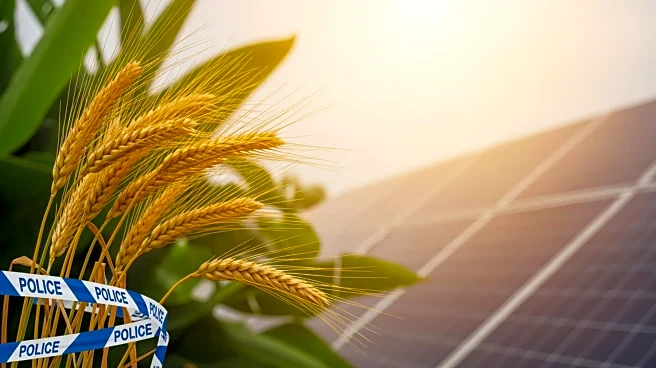What's Happening?
Brazilian President Lula da Silva announced during his visit to Mozambique that Brazil is renewing its commitment to Africa, particularly in sectors like agriculture, energy, and biofuels. Lula emphasized
the potential for joint progress in these areas and expressed regret over Brazil's previous neglect of Africa, attributing it to the policies of former President Jair Bolsonaro. Lula highlighted Brazil's efforts to recover its economy and credibility over the past two years, including revitalizing the National Bank for Economic and Social Development (BNDES) to finance exports. He stressed the importance of strengthening trade relations with Mozambique and other African countries, noting Brazil's ability to contribute to infrastructure development and food security in the region.
Why It's Important?
Brazil's renewed focus on Africa is significant as it aims to strengthen economic ties and support development in the continent. By investing in agriculture and energy, Brazil can help address food security and energy needs in Africa, fostering mutual growth. The revitalization of BNDES to finance exports is crucial for facilitating trade and investment between Brazil and African nations. This renewed commitment could lead to increased economic cooperation and development opportunities, benefiting both regions. Brazil's approach to Africa, focusing on collaboration rather than competition, may enhance its diplomatic relations and influence in the continent.
What's Next?
Brazil is expected to leverage its relationship with Africa to expand trade and investment opportunities. The focus will be on diversifying exports and increasing bilateral trade with countries like Mozambique. The BNDES will play a key role in providing credit options to support these initiatives. Brazil's efforts to strengthen ties with Africa may lead to new partnerships and projects in infrastructure, agriculture, and energy. The success of these initiatives will depend on continued diplomatic engagement and collaboration between Brazilian and African stakeholders.









